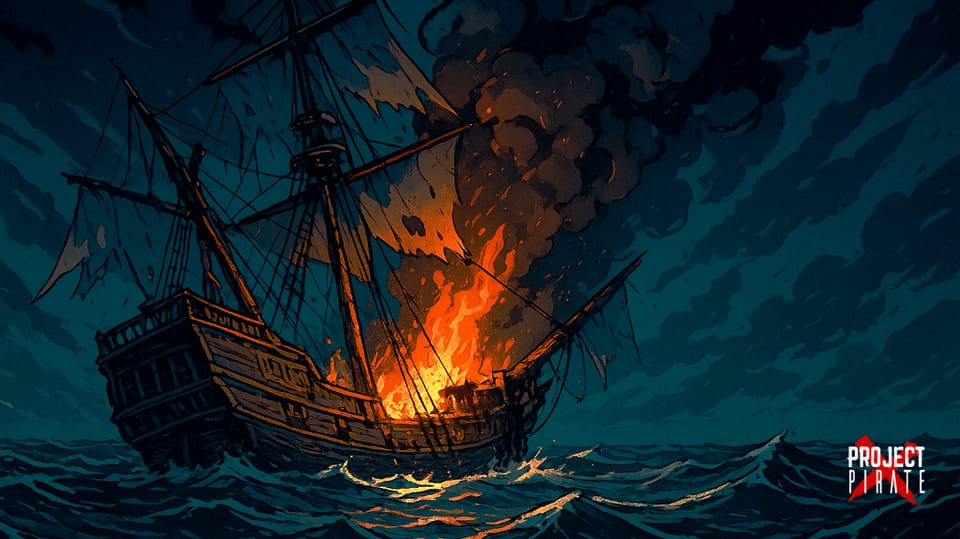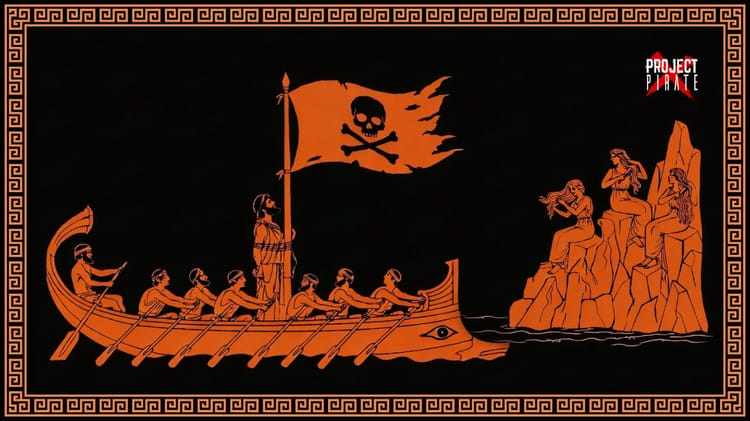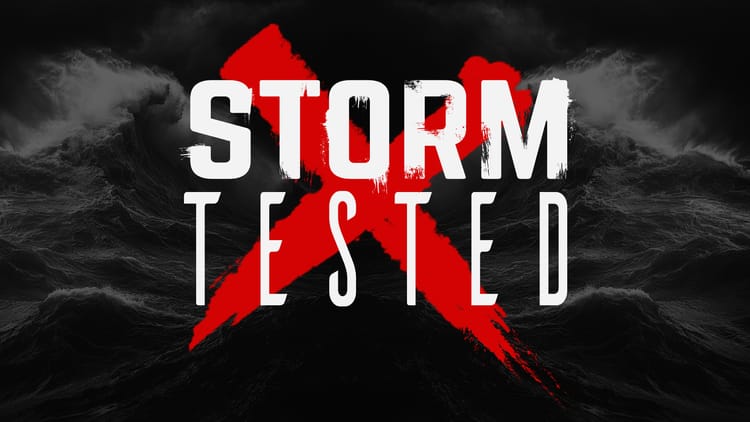Your Ship Is Sinking, Let Me Climb Aboard

The paradox of crisis leadership
There's something beautifully paradoxical about the phrase "your ship is sinking, let me climb aboard."
While every instinct screams "abandon ship," the leader forged by real crisis makes a declaration that sounds reckless to everyone else... but this isn't recklessness.
Take Tufan Erginbilgiç, who stepped into the CEO role at Rolls-Royce in January 2023 when the company was drowning in losses after COVID-19 destroyed their market. He didn't sugarcoat the situation; he told his people they were standing on a "burning platform." But he said it with the confidence of someone who had already navigated through darker waters. Within 21 months, the company's share price surged and profits more than doubled.
Or Sandeep Mathrani, who took the helm at WeWork in February 2020 when the company was spiralling towards the depths. While everyone else saw a toxic brand and an impossible mess, Mathrani saw exactly what his scars had prepared him for. By late 2021, WeWork had reached profitability - pulled back from the brink.
This is what courage looks like when it's been earned in rough seas.
What Storm-Testing Actually Forges
You don't learn to steady a panicking Crew in a classroom. You learn it at 3 AM when the hull's groaning, half your team wants to abandon ship and everyone's looking at you to decide whether to keep sailing or call it.
You don't learn to navigate by stars from a textbook. You learn it when every instrument contradicts the others, the fog's so thick you can't see the bow and your gut is the only compass you've got left.
You don't learn to find calm in the hurricane because you're naturally unflappable. You learn it because you've stood at the helm when the mast was bending, discovered you didn't break and realised you could do it again.
Storm-tested leaders possess something that cannot be taught: the unshakeable knowledge that they've already survived worse.
When True Leadership Shows Up
When the right Captain steps aboard, you feel it before you see it. Like wind changing direction.
The Crew stops eyeing the exits. They start looking for solutions. There's something unmistakable about someone who radiates "we've got this" - not as a slogan, but as lived truth.
Information starts flowing like tide turning. People stop hiding problems and start solving them because they sense steady hands on the wheel. No more working for someone who might panic when the first storm hits.
The story shifts: "This ship is going down" becomes "This is exactly the passage we were built for."
Hidden capabilities surface. Team members who were focused on survival suddenly remember they're mariners. They start contributing the best thinking they've been holding back.
This isn't charisma. This isn't rousing speeches. This is the measurable impact of someone who's already done the impossible and lived to tell the tale.
The Storm-Tested Assessment
A leader forged by genuine crisis evaluates a struggling project with the sharp eye of someone who's read a thousand different seas. They don't ask "Can this be saved?" - they run a rapid, pattern-based assessment:
Do my scars match this storm? Different tempests demand different hard-won lessons.
Is there enough good timber in this ship? Some vessels are too rotten in the beams, built on poor foundations or holed below the waterline by politics.
Can I assemble the right Crew? Even the best Captain needs skilled hands who won't jump ship at the first squall.
Is this voyage worthy of what I've learnt? Not every battle is worth the toll it takes on reputation and team.
This isn't arrogance. It's the discernment that separates reckless heroics from professional clarity - knowing which ships you can save and which will drag you down with them.
The Ultimate Professional Statement
"Your ship is sinking, let me climb aboard" represents the ultimate professional confidence statement. It's saying:
"I've been where you are, and I know the way through."
"What looks impossible to you is precisely what I've been preparing for."
"Your crisis is my expertise."
"I don't need perfect conditions to deliver extraordinary results."
This isn't bravado. It's professional clarity about what years of genuine adversity have built within them.
The Transformation Promise
A seasoned Captain doesn't just stabilise a sinking ship. They transform what the Crew believes is possible when the waves tower overhead.
Teams that sail with seasoned leaders through crisis don't just survive the storm - they emerge as mariners themselves, capable of navigating any waters ahead.
The project may have been sinking when the Captain climbed aboard. But the Crew that steps off will be ready to captain vessels of their own.
The Earned Right
Not everyone can make the declaration, "Let me climb aboard." It requires scars earned in smaller storms and the wisdom to know when a ship cannot be saved.
Even the most seasoned Captains know when a vessel is beyond rescue - and that discernment is what separates genuine confidence from reckless heroics. Some projects are designed to founder. Some teams are too fractured to rebuild. Some organisational waters are too poisoned to navigate.
Storm-tested leaders protect their Crew, their reputation, and their hard-won expertise by knowing which battles to fight and which ships to let sink.
When they do step aboard, it isn't bravado. It's professional clarity born from standing at the helm when others lost their nerve.
They're not taking a risk.
They're stating a fact: this is exactly what they were forged to do.
The storms are coming whether we're ready or not. The question isn't whether you'll face sinking ships - it's whether you'll develop the Storm-Tested confidence to step aboard when others are swimming for shore.
Join the Crew - for those ready to navigate uncharted waters with earned confidence. 🏴☠️
Your Ship is Sinking...Let me Climb Aboard





